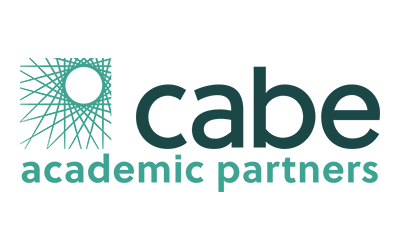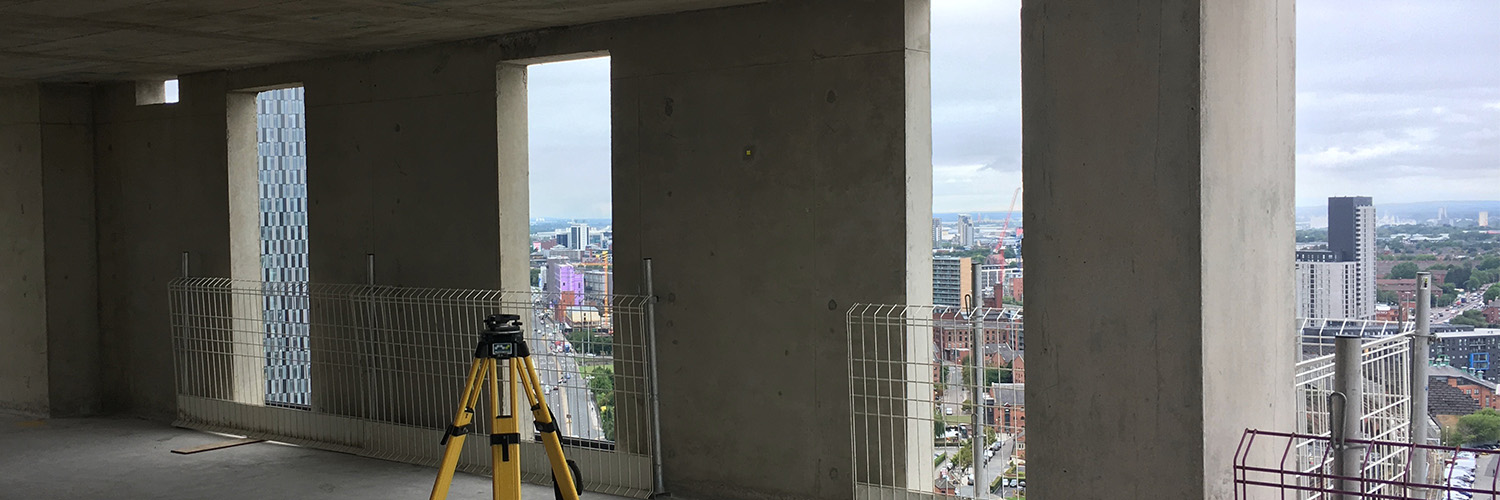
Building Surveying
Full-time
Part-time
Distance Learning
One year
Two and a half year
Two and a half year
September 2026
In a nutshell
In the post-pandemic recovery, not only will the construction industry build back better, but it will also grow greener. Repurposing buildings into sustainable new spaces is at the heart of this strategy. If you are considering a career where you can reimagine a building’s potential, our MSc Building Surveying masters degree is your next step.
Designed to prime you for a graduate surveyor role, our Royal Institute of Chartered Surveyors (RICS) and Chartered Association of Building Engineers (Cabe) accredited Building Surveying postgraduate degree course is recommended for graduates and experienced industry professionals seeking a career conversion route. The course is available with full-time, part-time and distance learning pathways.
Led by academics and industry practitioners, you will build the core technical skills that underpin the building surveyor’s particular expertise in understanding the fabric of existing buildings. You will also explore how BIM technology is revolutionising practice, and consider current industry trends in refurbishment, conservation, and adaptation.
Award-winning research you’ll learn from
University of Salford has won a prestigious Queen Elizabeth Prize for Education for its world-leading work in sustainable housing and energy efficiency. Through Energy House Labs, students benefit from teaching shaped by cutting-edge research that is helping to reduce energy costs, tackle fuel poverty and design low-carbon homes for the future.
The Queen Elizabeth Prizes for Education form part of the UK national honours system, recognising outstanding contributions by universities and colleges whose work delivers significant societal, economic and global benefit.
International applicant? Please check international intakes for the latest information and application dates.
Start your MSc Building Surveying study journey
Register for our next Open Day where you can learn more about the course, tour our campus and meet the tutors
You will:
- Study the core technological skills that underpin the building surveyor’s particular expertise in the fabric of existing buildings, including how buildings are constructed, and how they can deteriorate and fail
- Learn how buildings can be brought back into use at the end of their lives through refurbishment, conservation, and adaptation
- Understand the legal, professional and statutory context of the building surveyor’s role, including requirements relating to planning permission, construction contracts, and professional conduct
students accepted
Course accreditations



This is for you if...
You to have a real passion for developing, advancing and shaping the built environment
You are keen to develop technical skills in a recognised professional role
You're practical, creative and business-focused, with an enthusiasm to progress
All about the course
Course delivery
Our MSc Building Surveying course is delivered through a range of industry-aligned modules. The 180-credit MSc award comprises eight taught modules plus a dissertation. The 120-credit PgDip comprises eight taught modules. The 60-credit PgCert award comprises four specified taught modules.
Flexibility is at the heart of our learning approach. You can choose to study this postgraduate course full-time or part-time on campus, or part-time via distance learning:
- As a campus-based full-time student, you will complete four 15-credit taught modules in each of the first two trimesters. In the final trimester, you will complete a dissertation worth 60 credits
- As a campus-based part-time student, you will complete two 15-credit modules in each of the first four trimesters. In two additional trimesters, you will complete a dissertation worth 60 credits
- As a distance learning student, you will complete two 15-credit taught modules in each of your first four trimesters. In two additional trimesters, you will complete your dissertation online, with tutor support
The course timetable is designed to allow students with other commitments to structure their week around teaching sessions.
During the 2024/25 academic year full-time students are on campus 2, usually non-consecutive, days per week, and part-time students are on campus 1 day per week. While we cannot guarantee this exact schedule for future years, this provides an example of how we aim to deliver the course each year.
Learning experience
There are few better places to study building surveying. Located just over a mile from Manchester city centre, we're at the heart of the UK's largest architecture, engineering and construction market outside of London, with plenty of live case studies and a strong network of industry partners where you can find career opportunities once you graduate.
If you are studying on campus, you will have opportunities to visit live construction sites and assess potential development sites. Distance learning students will also experience our Collaborate Ultra virtual learning environment, supported by real-time and on-demand interactive sessions. Module assessment is driven by real-world problems aligned to your workplace or role.
Alongside gaining a strong understanding of real-world practice, you will develop your building surveying knowledge in topics such as planning and development, legal frameworks, procurement and information modelling. You will also strengthen your research and analytical skills by completing a dissertation on a topic of your choice. Learn more about the current course modules in the section below.
Course team
Our Building Surveying postgraduate programme is delivered by an academic team with extensive research and subject knowledge. The team is part of a global built environment community with prominence in shaping construction industry best practice.
Building Law Principles
This module will cover:
- Principles of contract law
- Introduction to building contracts
- Negligence and the duty of care
- Occupiers’ liability and building defects
- The land-related torts
- Introduction to commercial leases
Building Procurement and Contract Administration
This module will cover:
- Parties and professionals in the construction process
- Types of contractual arrangement
- Typical contract documents
- Pre-contract practice and the tender process
- Commencement and progression of the works
- Variations and contractual claims
- Valuations and certificates
- Completion and defect liability
Building Information Modelling
This module will cover:
- Introduction to Building Information Modelling (BIM)
- BIM concepts, principles, barriers and challenges
- BIM level 2
- BIM in the design process
- BIM in construction and facilities management
- Interoperability and standard
Building Surveying Practice
This module will cover:
- Professional conduct, ethics and client relations
- Practice of building surveys and reports
- Dilapidations surveys, negotiations and expert witness role
- Party wall practice and procedures
- Health and safety responsibilities and processes
- Maintenance and conservation management
- Regulatory issues
Building Technology
This module will cover:
- Sites and foundations
- Domestic scale construction
- Environment and services
- Large buildings
- Building high and wide
This module is studied across Trimester One and Two.
Building Adaptation
This module will cover:
- Feasibility (design process)
- Adaptive reuses
- Lateral and vertical extensions
- Principles and aspects of refurbishment
- Sustainable adaptation
Building Pathology
This module will cover:
- Cracking in buildings
- Dampness in buildings
- Deleterious materials
- Masonry and Concrete decay
- Cladding failure
Plan-making for Place-shaping
This module will focus on the planning policy framework, types of plans, development management and enforcement process and concept of placemaking for urban design, regeneration and conservation.
Dissertation
This module allows you to develop a research proposal with clear aims and objectives related to your study. You will undertake critical analysis of existing research and engage in various forms of recognised research in order to produce a sustained, sophisticated, and logical argument in the form of a written dissertation.
We take a flexible approach to our course delivery that promotes diversity and inclusivity and provides a blended learning experience, which will vary to meet specific programme requirements. This learning time includes formal lectures and interactive activities such as seminars, tutorials, practical sessions, laboratory and studio learning. Smaller classes may be used to support collaborative activities such as project and group work and presentations. A range of different assessments and feedback is offered to meet the needs of both our diverse student body and specific subject needs.
Our postgraduate taught courses are normally made up of 30 credit modules which are equal to 300 hours of learning time, or 15 credit modules which are equal to 150 hours of learning time. A Master’s degree typically comprises 180 credits, a PGDip 120 credits, and a PGCert 60 credits.
Please note that exact modules and content offered may vary in order to keep content current and, for courses that offer optional modules, may depend on the number of students selecting particular options. When accepting your offer of a place to study on a programme with optional modules, you should be aware that optional modules may not all run each year. Your tutor will be able to advise you as to the available options on or before the start of the programme. Whilst the University tries to ensure that you can undertake your preferred options, it cannot guarantee this.
Frequently asked questions
Is building surveying a good career?
A Building Surveying degree could open global opportunities within the built environment industry. It can be a very rewarding career, working on-site on exciting new projects and seeing your work come to fruition when projects are finished.
What is Building Surveying?
Building surveying is the process of inspecting and assessing the condition of buildings to ensure they are safe, functional, and compliant with regulations. It involves evaluating structural integrity, identifying defects, and recommending repairs or maintenance.
What exactly does a building surveyor do?
A building surveyor assesses the condition of buildings, advises on repairs and maintenance, and manages construction projects to ensure they meet technical and legal standards. They conduct detailed inspections, produce reports on a property's structural integrity, and provide expert advice on a wide range of issues from pre-purchase surveys to new-build projects and conservation work.
Is a building surveying degree worth it?
Not only are building surveyors in high demand; this is a highly rewarding career that offers great mobility, specialist knowledge and a promising starter salary.
What does a building surveyor look for?
The role of a building surveyor is to assess the quality of a building’s relationship with its internal and external environments. A building surveyor might also have to consider other factors such as conservation and regeneration.
Is building surveying a stressful job?
Building surveying could be considered a challenging field due to the size, complexity, and busy nature of buildings and surveying projects. However, our students find our programmes incredibly rewarding when gaining a wide range of skills during their studies.
There are methods to ensure you’re getting the best of your Building Surveying degree, including practicing good time management and making time for yourself to recharge. If you find your studies overwhelming, there will be support available from your lecturers and university support staff.
School of Science, Engineering and Environment
Rising to the challenge of a changing world, our postgraduate courses are designed to shape the next generation of urbanists, scientists, engineers, consultants and leaders.
Driven by industry and delivered by supportive programme teams, you can develop the knowledge and skills to take your career potential further.
Energy House
The way UK energy is supplied and consumed is changing fast. Consumers and small businesses will soon be able to generate, store, share, buy and sell their energy as the government encourages the transition to a greener economy.
Through commercial and grant funded research, Salford's world-class Energy House Laboratories help businesses understand how effective their products and services are in lowering consumers’ carbon footprint and reducing energy bills.
Industry collaboration and research
When you start this degree with Salford, you are also joining a community making a difference in industry, our local region and in our wider society.
Many of our academics and technicians who support your course also lead collaborative, interdisciplinary, high-impact work in a range of local and global built environment issues and challenges.
Discover how you are part of something bigger.
After your Building Surveying masters degree
EMPLOYMENT
This course will equip you for a rewarding career as a building surveyor in the construction industry. The life of a building surveyor is varied and challenging and it is highly likely that you’ll have plenty of opportunities to travel, and that you’ll play a key role in shaping the built environment.
With an extensive understanding of buildings, the law, property and construction, you will be well equipped to pursue roles in a variety of areas including: building defect diagnostics, the conservation of historic buildings, acquisition and condition surveying, refurbishments alterations and extensions, the specification and supervision of construction work, dilapidations, party walls and rights to light work, and the design of new buildings.
Opportunities exist for building surveying graduates in a range of private and public sector environments. These include surveying and architectural professional practices, property and construction companies, and the estates departments of major organisations with substantial property holdings.
Our building surveying graduates have found employment with a number of organisations including: B&Q, Blackburn with Darwen Borough Council, Central Manchester University Hospitals NHS Foundation Trust, Gleeds Construction Consultants, Manchester City Council, Mansell Construction Services, National Grid, Network Rail, Property Tectonics Ltd, STMC Building Control Ltd.
FURTHER STUDY
You might also choose to take your subject interest further with postgraduate research. Our Centre for Urban Processes, Resilient Infrastructure and Sustainable Environments is home to PhD and Research Master’s opportunities exploring how we can enhance our built environments at local, national and international scales.
Explore our Doctoral School to learn more about research training, support and opportunities.
How to get accepted on the MSc Building Surveying degree
APPLICANT PROFILE
Designed to provide a career focus, the course is open to graduates from a broad range of subjects, including the arts, sciences, law or business. This course is also recommended for current professionals who want to formalise their existing building surveying skills.
No prior knowledge of building surveying, property or construction is required, however, it is important that you are prepared for the scope of the course content. Building surveyors have a passion for historic and modern buildings, possessing practical, creative, business-focused skills and able to operate in a professional environment. Possessing these qualities will enhance your learning experience.’
ENGLISH LANGUAGE REQUIREMENTS
All of our courses are taught and assessed in English. If English is not your first language, you must meet our minimum English language entry requirements. An IELTS score of 6.0 (no element below 5.5) is proof of this, however we do accept a range of equivalent qualifications.
Read more about our English language requirements, including information about pathways that can help you gain entry on to our degree courses. If you do not have the English language requirements, you could take our Pre-Sessional English course.
INTERNATIONAL APPLICATIONS
Please check international intakes for the latest information and application dates.
COURSE ACCREDITATION
The full masters award is accredited by the Royal Institution of Chartered Surveyors (RICS). Accreditation enables exemption from some academic entry requirements.
Undergraduate Degree
Applicants must have a minimum of a lower second class honours degree (2:2).
International student entry requirements
We accept qualifications from all around the world. Find your country to see a full list of entry requirements.
Accreditation of Prior Learning (APL)
We welcome applications from students who may not have formal/traditional entry criteria but who have relevant experience or the ability to pursue the course successfully.
The Accreditation of Prior Learning (APL) process could help you to make your work and life experience count. The APL process can be used for entry onto courses or to give you exemptions from parts of your course.
Two forms of APL may be used for entry: the Accreditation of Prior Certificated Learning (APCL) or the Accreditation of Prior Experiential Learning (APEL).
For more information or enquires about this scheme, please contact: AdmissionsSEE-PGT@salford.ac.uk
The cost of studying building surveying
For students beginning their studies in January 2026, please see fees for 2025/26.
| Type of study | Year | Fees |
|---|---|---|
| Full-time home | 2025/26 | £9,800 per year |
| Full-time international | 2025/26 | £17,000 per year |
| Full-time home | 2026/27 | £10,620 per year |
| Full-time international | 2026/27 | £17,520 per year |
| Part-time | 2026/27 | Calculated on a pro rata basis |
| Distance learning | 2026/27 | Home students £885 International students £1106 per 15 credits |
The credits for each qualification works as follows: 180 credits for Masters, 120 credits for PGDip and 60 credits for PGCert
Additional costs
You should consider further costs which may include books, stationery, printing, binding and general subsistence on trips and visits.
International student scholarships
If you are a high-achieving international student, you may be eligible for one of our scholarships. Learn more about our latest international scholarships.


